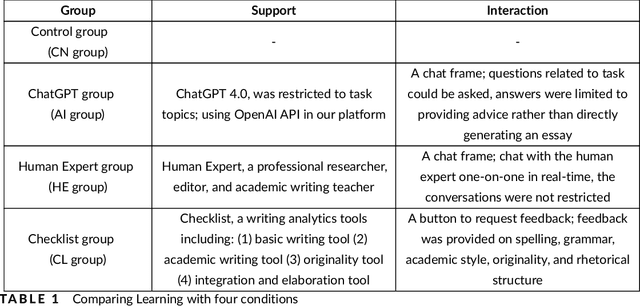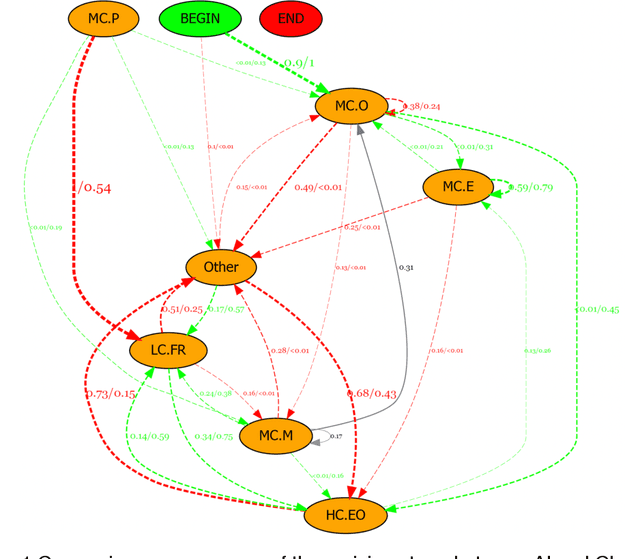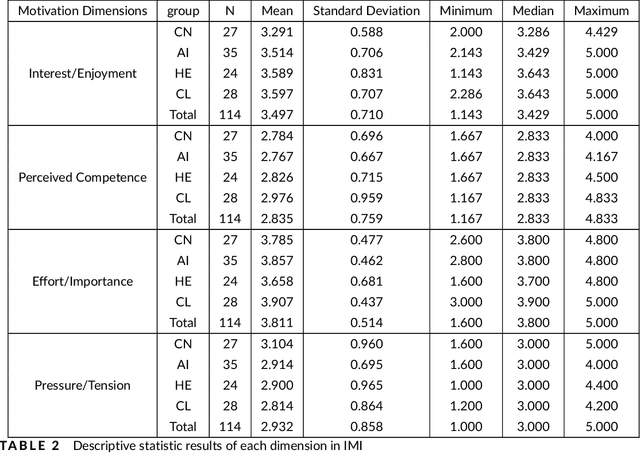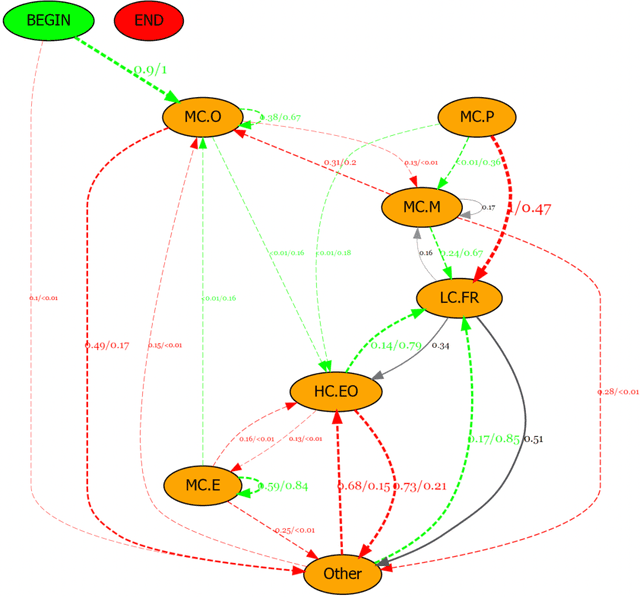Yizhou Fan
Beware of Metacognitive Laziness: Effects of Generative Artificial Intelligence on Learning Motivation, Processes, and Performance
Dec 12, 2024



Abstract:With the continuous development of technological and educational innovation, learners nowadays can obtain a variety of support from agents such as teachers, peers, education technologies, and recently, generative artificial intelligence such as ChatGPT. The concept of hybrid intelligence is still at a nascent stage, and how learners can benefit from a symbiotic relationship with various agents such as AI, human experts and intelligent learning systems is still unknown. The emerging concept of hybrid intelligence also lacks deep insights and understanding of the mechanisms and consequences of hybrid human-AI learning based on strong empirical research. In order to address this gap, we conducted a randomised experimental study and compared learners' motivations, self-regulated learning processes and learning performances on a writing task among different groups who had support from different agents (ChatGPT, human expert, writing analytics tools, and no extra tool). A total of 117 university students were recruited, and their multi-channel learning, performance and motivation data were collected and analysed. The results revealed that: learners who received different learning support showed no difference in post-task intrinsic motivation; there were significant differences in the frequency and sequences of the self-regulated learning processes among groups; ChatGPT group outperformed in the essay score improvement but their knowledge gain and transfer were not significantly different. Our research found that in the absence of differences in motivation, learners with different supports still exhibited different self-regulated learning processes, ultimately leading to differentiated performance. What is particularly noteworthy is that AI technologies such as ChatGPT may promote learners' dependence on technology and potentially trigger metacognitive laziness.
Modifying AI, Enhancing Essays: How Active Engagement with Generative AI Boosts Writing Quality
Dec 10, 2024Abstract:Students are increasingly relying on Generative AI (GAI) to support their writing-a key pedagogical practice in education. In GAI-assisted writing, students can delegate core cognitive tasks (e.g., generating ideas and turning them into sentences) to GAI while still producing high-quality essays. This creates new challenges for teachers in assessing and supporting student learning, as they often lack insight into whether students are engaging in meaningful cognitive processes during writing or how much of the essay's quality can be attributed to those processes. This study aimed to help teachers better assess and support student learning in GAI-assisted writing by examining how different writing behaviors, especially those indicative of meaningful learning versus those that are not, impact essay quality. Using a dataset of 1,445 GAI-assisted writing sessions, we applied the cutting-edge method, X-Learner, to quantify the causal impact of three GAI-assisted writing behavioral patterns (i.e., seeking suggestions but not accepting them, seeking suggestions and accepting them as they are, and seeking suggestions and accepting them with modification) on four measures of essay quality (i.e., lexical sophistication, syntactic complexity, text cohesion, and linguistic bias). Our analysis showed that writers who frequently modified GAI-generated text-suggesting active engagement in higher-order cognitive processes-consistently improved the quality of their essays in terms of lexical sophistication, syntactic complexity, and text cohesion. In contrast, those who often accepted GAI-generated text without changes, primarily engaging in lower-order processes, saw a decrease in essay quality. Additionally, while human writers tend to introduce linguistic bias when writing independently, incorporating GAI-generated text-even without modification-can help mitigate this bias.
 Add to Chrome
Add to Chrome Add to Firefox
Add to Firefox Add to Edge
Add to Edge